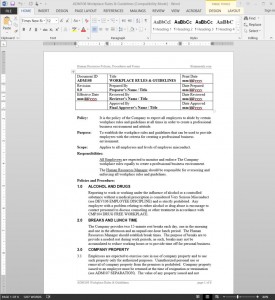How to Establish Discipline in a Remote Workspace

Remote work is becoming more common, and with it comes with a significant amount of freedom. People with this privilege are usually in control of how they get things done, and some of them determine their hours. This flexibility often makes it easy to succumb to domestic distractions and interruptions from personal life. How to establish discipline in a remote workspace.
Establishing Discipline in the Remote Workplace
Indeed, studies have shown that remote workers are productive and even put in more hours than in-office employees. A Stanford study that surveyed 16,000 employees recorded a 13% increase in productivity while teleworking.
However, that productivity is often threatened by a lack of self-discipline. Workers can begin to skip meetings, fail to meet deadlines, and even go AWOL sometimes. If this case of indiscipline is becoming endemic in your virtual workplace, keep reading to find out how you can resolve the problem.
Developing a culture of discipline in a remote workplace can be challenging. That’s because people are working from homes with different situations. As a result, showing them how to be disciplined at work might not be as easy as you want it to be.
However, setting up and enacting uniform disciplinary measures promotes equality and harmony. And with the right approach, you can get the best out of your teleworkers, using common-sense policies and practices that instill discipline. Here are tips that will help you do things right.
Set Up Rules of Conduct
Aa a good boss, you don’t want to come off as a dictator, your virtual workplace needs order. Every company has set rules and policies guiding its workforce, and yours shouldn’t be any different. Communicate your business’ DOs and DON’Ts to employees, and make sure everything in the document imbues a sense of discipline.
For example, outline the consequences of flouting different rules. There should be a penalty for failing to meet deadlines, missing meetings, and refusing to collaborate with the team, among others. You can choose to enforce these rules on a case-by-case basis.
That’s because you’d want to understand why they disobeyed seeing that remote employees work from home. Make sure an expert reviews these codes of conduct so as not to end up being high-handed and inconsiderate.
Reward and Rebuke

Guidelines for Workplace Rules Procedure establishes rules and standards that may be utilized to offer your staff with the requirements needed to create a professional corporate environment.
There should be consequences for breaking your company’s rules and codes of conduct. Whenever an employee is guilty of an offense, the due punishment should be handed out. However, this should be done after proper investigation. When you allow people to go free after flouting the rules, they’ll easily abuse that leniency.
What’s more, other workers will feel unfairly treated if someone else gets away with an offense they work hard to avoid. So, don’t discriminate while disciplining remote employees.
You can’t let bad behavior slide if it’s a senior employee or junior staff. Everyone should be treated the same. On the other hand, ensure you recognize and reward good behavior.
This way, your remote workers are motivated to stick with the rules and stay dedicated. Studies have shown that frequent, immediate rewards improved workers’ interest in their jobs. So, ensure you don’t delay rewards for small tasks. You can also recognize hard-working employees monthly, quarterly, and annually.
Do Regular Check-Ins
Just because the remote workspace lacks physical supervision, it doesn’t mean workers should be left entirely alone. People need a nudge every now and then to refocus on their work. As a remote project manager, moderated check-ins can do the trick.
You can check in on employees and teams who are tasked with critical projects. You could do the check-ins daily or within a specified period. Before the project starts, you should let them know you’ll be counting on them to respond to these random calls.
However, you should do your part right by being fair. Only check in during work hours and make sure you don’t overdo it. Sometimes, checking in once a day can be enough as you don’t want to cast a lurking shadow over your workers. Alongside check-ins, you can organize daily briefs and situation reports to track the progress of any project.
Enforce the Use of Time Trackers
Time trackers ease the teleworking process. They are primarily used to track billable hours and automatically create timesheets. Time trackers applications are configured to track mouse and keyboard movements to ensure workers are active and can result in increasing employee productivity. They can also take random screenshots so managers can confirm that employees are on the job.
Using these time tracker applications will motivate workers to diligently do their jobs and respect work hours. Some time trackers double as productivity apps. They can keep tabs on programs and websites you visit to help you identify what to avoid and focus on the job.
Your workers’ privacy can also be safeguarded as some of these trackers blur screenshots sent to supervisors. This way, they can have an idea of what their remote staff is doing without privacy infringements. It doesn’t end at introducing time trackers. Make sure the policy around using them is strict.
Create Deadlines for Small Tasks
Remote workers can easily postpone small tasks they consider less important until they cause problems. This kind of behavior can spiral into something dangerous.
If left unchecked, they could start putting off critical tasks. So, with every job, no matter how small, you should create deadlines for small tasks and consider attaching penalties to failing those targets.
Avoid Micromanagement
You can easily be tempted to make constant calls and request multiple updates in a day. After all, you’re working with a team you can’t see and have no physical supervision. However, doing that can backfire real fast.
For starters, a common mistake new managers make is micromanaging and hounding your workers prevents them from doing their jobs. Secondly, you’re sending a clear message that you don’t trust them to get through things on their own. So, if you want updates, schedule check-ins and project briefs that don’t disrupt their workflow.
Encourage Communication
Communication is an effective tool that can improve discipline in the workplace. Unfortunately, the remote work environment isn’t communication-friendly. Sometimes, teleworkers are lost in their worlds and end up working in silos. It feels like an extra chore to reach out to a colleague or ask a supervisor for guidance on small issues.
You can remedy this by providing communication channels and encouraging your staff to use them. Great remote working tools for communication include Slack and Microsoft Teams. You should also enforce regular team meetings and project briefs. This way, employees are reminded that they’re part of an organization. Hearing other people’s achievements and progress will also inspire them to buckle up and do better.
Discipline in the Remote Workplace
Disciplined workers are effective workers. So, make sure you train remote employees to work more effectively by implementing the right policies to keep your workforce on the grind. You should also remember that remote employees work from home where their jobs and personal lives are now merged. That means you have to take specific things into consideration. For example, punishing an employee for not picking up work calls outside office hours can be wrong.















Leave a Reply